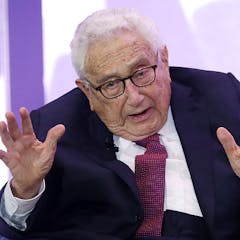
Articles on Unita
Displaying all articles

The sites provide a rare tangible record of the international solidarity that existed during the Cold War.

He failed to understand that the struggle for justice and freedom in southern Africa was changing the world - and diplomacy itself.

The relationship between Pretoria and Moscow was forged in the apartheid era with the then Soviet Union giving support to banned ANC fighters.

The loss of a two-thirds majority in parliament would be seen as a significant defeat for the MPLA.

Angola’s 2022 election is the first in which citizens born after the war are old enough to vote.

The political skill to turn situations to his advantage, rather than any ability to mobilise people, made Angolan president José Eduardo dos Santos one of Africa’s longest-serving leaders.

Dos Santos died as he had lived and governed: in silence. His silence, and what he accomplished with it, is his most enduring legacy.

The MPLA is using all instruments at its disposal to hobble a new united opposition front ahead of the Angola election.

A new book explains the manifestations of the oil curse in Nigeria and Angola since independence.

Citizens have been denied their right to elect officials at the grassroots and this has allowed the central government to maintain rigid control of the country’s regions.

No other photographer in southern Africa has documented war in the way that John Liebenberg did. He captured the life and the conflict of both sides in his body of work.

Controversy around Winnie Madikizela-Mandela continues in death as it did in life.

Angola’s president-elect, João Lourenço, has a reputation for relative probity. But, he’s unlikely to rock the boat as Eduardo dos Santos remains party chairman.

For a military battle whose outcome is still hotly contested 30 years later, the impact was so remarkably clear – independence for Namibia, peace for Angola and the death knell for apartheid.
